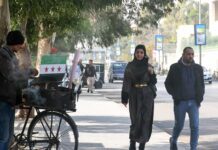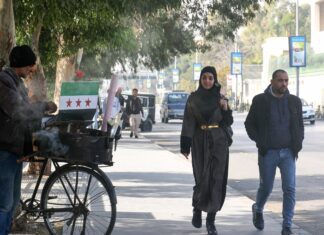
The international community is beginning to engage with Syria’s Transitional Government (STG) and revolutionary institutions in the wake of Bashar al-Assad’s regime collapse earlier this month. Nations and organizations are cautiously navigating the new political landscape, balancing diplomatic outreach with calls for transparency, inclusivity, and accountability as Syria seeks stability and recovery.
EU Engagement & Support
The European Union (EU) announced the reopening of its delegation office in Syria, signaling a significant shift in relations. European Commission President Ursula von der Leyen described the regime’s fall as “a liberation for the Syrians,” while stressing that Europe’s involvement will focus on supporting a peaceful and inclusive transition.
“We must reconsider sanctions on certain sectors to facilitate reconstruction,” von der Leyen said, emphasizing the EU’s commitment to a gradual rebuilding process aligned with the ongoing transformations in Syria. The EU also pledged increased humanitarian aid to address urgent needs, including rebuilding critical infrastructure and supporting refugees’ voluntary return.
France took another symbolic step by raising its flag over its embassy in Damascus for the first time since 2012, while Germany initiated talks about establishing diplomatic representation in the capital. These actions reflect growing European openness toward engagement with the STG.
US Considers “Strategic Involvement”
The US remains measured in its approach, with officials assessing the situation before committing additional resources. State Department Spokesperson Matthew Miller highlighted America’s focus on supporting a unified Syrian government that represents all ethnic groups.
Secretary of State Antony Blinken expressed optimism for a non-sectarian, inclusive Syria while Miller emphasized the need to remove sub-national militias and foreign fighters. Washington has also maintained its presence in northeastern Syria, with over 900 troops assisting the Syrian Democratic Forces (SDF) in counter-terrorism efforts, and mentioned troops may be increased depending on the needs in the region.
China & Russia Signal Contrasting Approaches
Chinese Foreign Minister Wang Yi pledged Beijing’s continued support for Syria’s sovereignty and stability, reflecting China’s emphasis on non-interventionist policies and infrastructure development.
Conversely, Russia appears to be reevaluating its military presence in Syria. Satellite imagery revealed Russian troop withdrawals and the transport of military assets from the Hmeimim airbase. Kremlin officials have signaled intentions to negotiate future roles with the STG while denying final decisions regarding their military bases.
Challenges of Rebuilding
Rebuilding Syria poses significant challenges. Nearly 40% of buildings have been destroyed or partially damaged, and the nation’s GDP stands at a fraction of its pre-conflict level. Reconstruction is estimated to require $10-15 billion annually. The STG has begun restructuring key institutions to address corruption, overhaul outdated laws, and ensure accountability. New diplomatic appointments aim to enhance Syria’s international engagement.
UN Special Envoy Geir Pedersen urged the global community to support Syria’s recovery by organizing free and fair elections and adopting a new constitution. Pedersen also called for lifting sanctions to facilitate economic recovery and urged cooperation with Kurdish-led regions to ensure comprehensive political solutions.
“We must respect Syria’s sovereignty while addressing the aspirations of all Syrians,” Pedersen said, reaffirming the UN’s commitment to implementing Resolution 2254, which outlines a roadmap for Syria’s transition.
The Road Ahead
Despite promising signs of international engagement, concerns remain over the influence of armed groups, regional tensions, and economic hurdles. France plans to host an international conference on Syria next year, focusing on linking reconstruction aid to clear political and security commitments from the STG.
As global actors adapt to Syria’s evolving reality, their involvement will shape the country’s transition. With its revolutionary institutions and newfound sovereignty, Syria faces a critical period of rebuilding trust, fostering unity, and forging a path toward stability and prosperity.








